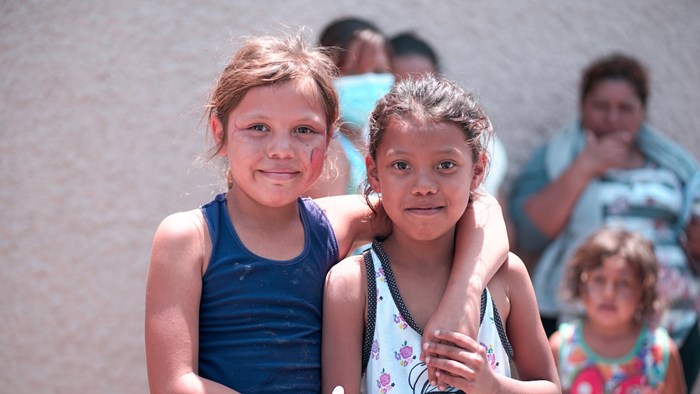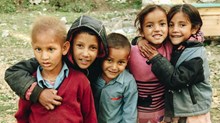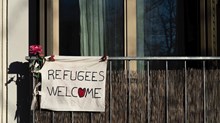Her Body is a Border: We Need to Better Protect and Provide For Women and Girls

Sometimes, my womanhood doesn’t fit into the life I live. As a kid in a private high school, the dress code unfairly advantaged boys and highly disadvantaged curvy girls. In college, I tried to find the line between being kind to men yet firm when I was not interested in their attention, which is a line women walk all the time (even when smiling at strangers). It’s laughable how many times guy friends or family immediately get awkward around topics like menstruation or pregnancy. Even in corporate America, women are speaking out more about needing to bring our full selves to work—including needing spaces to breastfeed, adequate family leave, and actually acknowledging our bodies in a non-oversexualized way.
Tell me this: is it shameful to have a body, and are our physical needs unimportant simply because they’re forgotten? My physical existence often acts as a barrier to accessing a next step; yet I am not being forcibly displaced from my home.
If my body is a barrier to success in my comfortable middle class life, how much more so is it for a woman fleeing across borders? I can laugh when my male coworker is uncomfortable with “feminine” topics, but for a forced migrant, her own body determines if she lives or dies.
When an experienced humanitarian leads a conversation on the water, sanitation, and hygiene (WASH) sector’s regulations and global needs yet never once mentions measures that women and girls need to survive, we have a serious problem. Although not addressing menstruation needs is a relatively minor example of gender-based violence (GBV), when a woman’s body is not welcome in a refugee camp in this seemingly small way, it should provoke conversations about further necessary protections that aren’t in place.
Research shows forced migration and living in refugee camps exasperates pre-existing vulnerabilities in people groups across intersectional differences. Age, gender, sex, ability, ethnicity, political affiliation, and other factors can impact how easy it is for an asylum-seeker to leave their homes, access transitional resources, and survive along the way. Women face additional challenges, both from individual interactions with others and from lack of structural support.
As the Ukraine crisis continues, for example, we see the necessity of safe programming throughout the disaster response and recovery efforts. Reports from the past year indicate particularly high risk for displaced women and girls at borders, collective centers, and bomb shelters; in spaces where mitigation measures should already be in place, women’s bodies are being abused. Interventions in the midst of a conflict must also consider protection responsibilities.
Programs focused toward GBV and reproductive health are underfunded across the globe. In humanitarian crises, the rates of “unwanted pregnancy, gender-based violence, STIs and maternal mortality” significantly increase. UN Women states 70% of women experience GBV in some crisis settings. Humanitarian organizations and related sectors need greater balance in gender for leadership, as recent research reveals the majority of actors are still primarily men, and “women often hold only symbolic positions.” Forgetting to mention tampons in my graduate level course is a small piece of the male-dominated puzzle, a puzzle which has serious repercussions toward protecting women.
A few weeks ago in a graduate course, Ellen Miller (National Immigrant Justice Center and formerly with UNHCR) mentioned families preparing to cross Mexico seeking American entry have been known to give their young teen daughters birth control. Because they know the journey is arduous and the likelihood of sexual abuse is high, they want to protect the girls from the additional weight of pregnancy. How desperate must you be to lead your girl across a violent social landscape towards hope, arming her with birth control?
A body should not be a border to a better life. Especially when our global neighbor has to cross many national and rhetorical borders, her body should not be the starting line. Addressing structural complexities for welcoming forced migrants starts with you. Let’s better protect women and girls.
Esther Kocka is a recent graduate of HDI’s Humanitarian and Disaster Leadership M.A. program at Wheaton College.
The Better Samaritan is a part of CT's
Blog Forum. Support the work of CT.
Subscribe and get one year free.
The views of the blogger do not necessarily reflect those of Christianity Today.





















